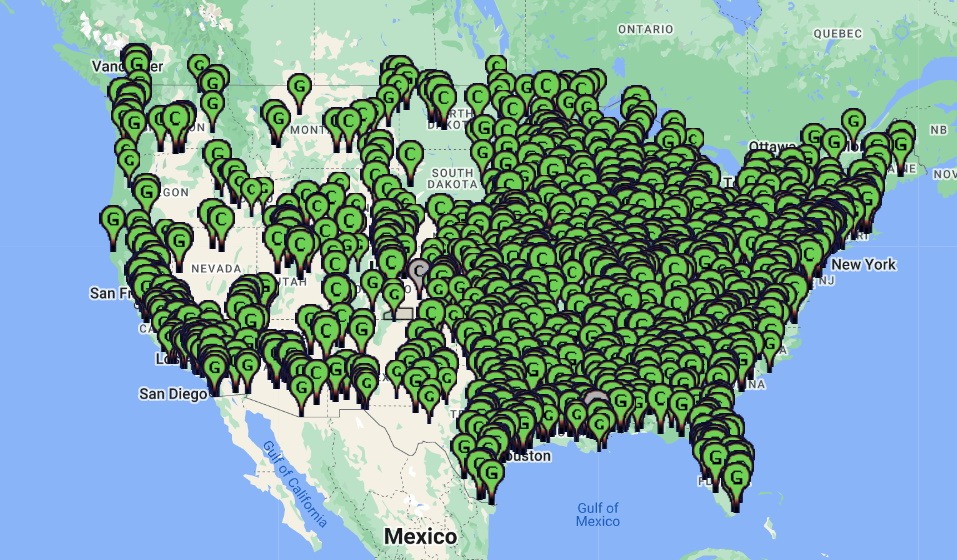Category: Blog entry
-
Biomass Profiteering Trumps Children’s Health in Rothschild, Wisconsin
For many people, nothing typifies the American Dream more than buying a house in a small town to start a family. Five years ago school teacher Robert Hughes and his wife purchased a home in Rothschild, Wisconsin, population 5,000 and had two children, now three years and three months old. Today, the Hughes’ dream is…
-
Report Predicts Bioenergy Crop Invasion
A new report released by the National Wildlife Federation (NWF) details yet another in a long and growing list of ecological and economic threats from industrial-scale biomass energy: the risk of bioenergy crops becoming invasive species. Growing Risk: Addressing the Invasive Potential of Bioenergy Feedstocks discusses the negative impacts on the environment and the economy that are likely…
-
Medical Doctors Brief Congress on Biomass Energy Health Hazards
Three medical doctors and a scientist presented the first-ever Congressional briefing on the health hazards of biomass incineration in the U.S. Congress in Washington, D.C. on September 25, 2012. The briefing was arranged and sponsored by Save America’s Forests and the presentations can be viewed online here. Pediatricians William Sammons, M.D., of Massachusetts and Norma Kreilein, M.D., of…
-
New Report Slams “Sustainable” Biomass Energy
Biomass energy is not sustainable at an industrial scale, according to a new report by Biofuelwatch, an international organization based in the US and United Kingdom (UK). Sustainable Biomass: A Modern Myth sounds the warning bell on trends that would make the UK the world’s largest consumer of biomass electricity, along with the inevitable impacts on the climate,…
-
Carbon Accounting Errors Skew Burlington, Vermont’s Climate Plan
The City of Burlington, Vermont’s Draft Climate Action Plan reports only a fraction of the carbon dioxide (CO2) smokestack emissions from the McNeil Generating Station [pictured below]—a 50 megawatt biomass incinerator supplying roughly one-third of the city’s electricity—hindering the city’s efforts to accurately measure and reduce its carbon footprint. The U.S. Environmental Protection Agency (EPA) calculates McNeil’s CO2 emissions alone at 444,646 tons…
-
Obama and Romney Unite on Destructive Bioenergy Policy
President Barack Obama and Republican Party Nominee Mitt Romney may not see eye to eye on issues like same-sex marriage, immigration, or abortion, but when it comes to the candidates’ harmful stances on biomass energy and biofuels, the two might as well be running on the same ticket. Governor Mitt Romney Technically, Romney’s white paper on energy policy, The…
-
EPA to Revise Particulate Matter Standards
– by Rachel Smolker Medical professionals agree that particulates—especially the smaller ones that can enter deep into the lungs—are harmful to human health, so much so that there is, in fact, no “safe level” of exposure. Yet, the U.S. Environmental Protection Agency is tasked with setting a level for particulate emissions from biomass and other power plants—as…
-
Biomass Opponents Silenced by North Carolina Commission
Residents of six counties in North and South Carolina facing massive chicken and pig-manure burning biomass power incinerators, including a man dressed as a chicken [pictured below], were barred from giving testimony at a North Carolina Utilities Commission hearing over biomass electricity requirements on August 28 in Raleigh. The hearing was in response to a request by Duke Energy, Progress Energy, Dominion…
-
Biomass Incinerator Looms on Horizon for Gypsum, Colorado
An 11.5 megawatt biomass power incinerator proposal for the 6,400 person central-Colorado town of Gypsum is moving along swiftly, despite concerns of community members and at least one town councilor. Utah-based Eagle Valley Clean Energy LLC’s facility would burn 70,000 bone-dry tons per year of wood chips from whole trees—living and beetle-killed—tree branches and limbs, and “urban wood waste…
-
Gainesville, FL Ratepayers Demand Biomass Refund
Dozens of demonstrators gathered in front of Gainesville City Hall on August 2 to demand that Gainesville Regional Utilities (GRU) repay $15 million to ratepayers—$194 per household—for high electric rates associated with the construction of the Gainesville Renewable Energy Center (GREC), a 100-megawatt biomass incinerator scheduled to go online in 2013. Protesters accused the utility of overcharging ratepayers…
EJ Communities Map

We are mapping all of the existing, proposed, closed and defeated dirty energy and waste facilities in the US. We are building a network of community groups to fight the facilities and the corporations behind them.
Related Projects
ActionPA
EJnet
Corporations
Race & Class Census Map
